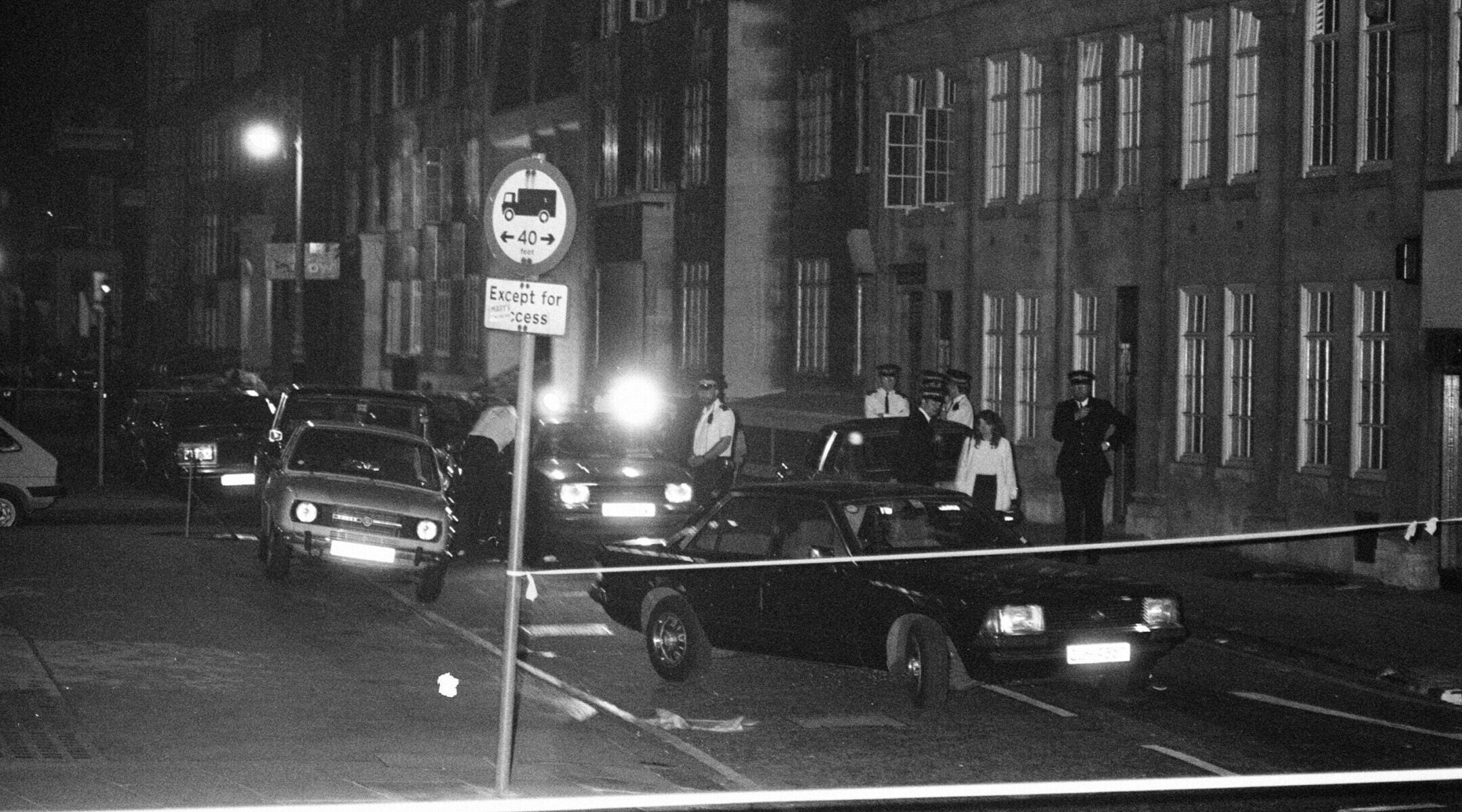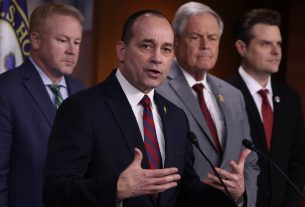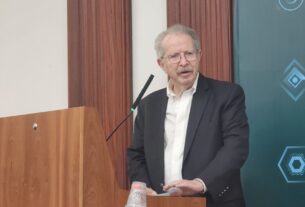WASHINGTON – A hawkish Israeli leader, itching for a pretext to expand the war against Palestinian groups, seizes on the shooting of an Israeli diplomat in a foreign capital.
That was how Israel’s first Lebanon war came to be, in 1982. Israel was chafing at the restraints of a Reagan administration-brokered ceasefire with the Palestine Liberation Organization the year previous.
A June 3, 1982 shooting attack on Israel’s envoy to London, Shlomo Argov, provided the pretext sought by Israel’s defense minister, Ariel Sharon. On the evening of June 5, Israel’s cabinet convened and ordered the invasion of Lebanon.
The scenario has echoes in the current moment: Israeli Prime Minister Benjamin Netanyahu just expanded the war against Hamas in Gaza, against the inclinations of a Republican president who wants the war to end.
And on Wednesday night, a gunman claiming to act on behalf of Palestinians allegedly shot dead a young couple who were staffers at the Israeli embassy in Washington.
There are differences: Argov survived the shooting. Netanyahu has forcefully condemned Wednesday’s attack, but, unlike then-Prime Minister Menachem Begin, he has not cited it as a pretext to further intensify the war against Hamas.
Still, there are parallels: Like Begin, Netanyahu had reason to believe that the replacement of a Democratic president by a hawkish Republican would remove Israel’s constraints.
But just as Begin was disappointed with President Ronald Reagan’s heavy hand in keeping Israel from acting against its enemies, so too has Netanyahu been blindsided by President Donald Trump’s maneuvers to restore Middle East peace — at times without Israeli involvement.
And like Sharon, who cajoled Begin into launching the war, Netanyahu has publicly chafed at U.S. demands for a ceasefire. He laid down his conditions in a press conference Wednesday evening in Israel, hours before the shooting: the eradication of Hamas, the removal of its entire leadership from the Gaza Strip — and the implementation of the “Trump plan” to encourage Palestinians to voluntarily leave Gaza.
“Everyone calling on us to end the fighting before these goals are met is essentially calling to leave Hamas in power,” Netanyahu said. He framed his demands as comporting with those of Trump, but he made the speech days after reports emerged that one of Trump’s top negotiators, Steve Witkoff, was pressing Israel to cease fire.
The ceasefire that Reagan’s envoys brokered in July of 1981, months after Reagan entered office, had similarly left Begin and Sharon unsatisfied. The PLO, then based in Lebanon, saw the ceasefire as applying strictly to the Israel-Lebanon border. The Reagan administration perceived the terms of the ceasefire as ending any action against Israel that originated in Lebanon.
Israel believed the ceasefire should apply to any action carried out on behalf of Palestinians anywhere, and believed that terrorist activity in the year between July of 1981 and June of 1982 – including attacks in Italy, Paris, Antwerp and finally, on Argov in London — were violations.
It didn’t matter that Abu Nidal, the nom de guerre of the man whose agents carried out the attack on Argov, was the deadly enemy of PLO leader Yasser Arafat. “Abu Nidal, Abu Shmidal,” Begin reportedly seethed when he was presented with the argument that the Argov attack did not constitute a ceasefire violation.
At present, the alleged Washington gunman has no known ties to Hamas, and appears to have emerged from far-left U.S.-based pro-Palestinian groups.
The Lebanon war technically ended under U.S. pressure in September of 1982, after a Christian militia that at times coordinated with Israel massacred hundreds of Palestinians in a refugee camp, but in reality it simmered until the summer of 2000, when Israel withdrew its troops from an occupation in the south of the country.
Argov recovered from the bullet wound to his head. A year and a month after Abu Nidal’s agents attempted to kill him, he released an interview with a startling takeaway: The attack on him did not justify the Lebanon war.
“Our nation emerged from this war weaker than it was before,” he said. “Israel must always avoid embroilment in unreasonable military adventures… Our soldiers should always have the right [to know] that they will not be sent to war unless war is the sole option for survival.”
The unrest and chaos sowed by Israel’s occupation helped give rise to Hezbollah, the Iranian-backed Lebanese terror group. A decade later, Israel assassinated Hezbollah chief Abbas al-Mussawi.
A Hezbollah-aligned group plotted its revenge on another diplomatic mission: the March 17, 1992, attack on the Israeli embassy in Buenos Aires, which killed 29 people and wounded hundreds.
Argov died in 2003, aged 74.
Keep Jewish Stories in Focus.
(JEWISH REVIEW) has documented Jewish history in real-time for over a century. Keep our journalism strong by joining us in supporting independent, award-winning reporting.




